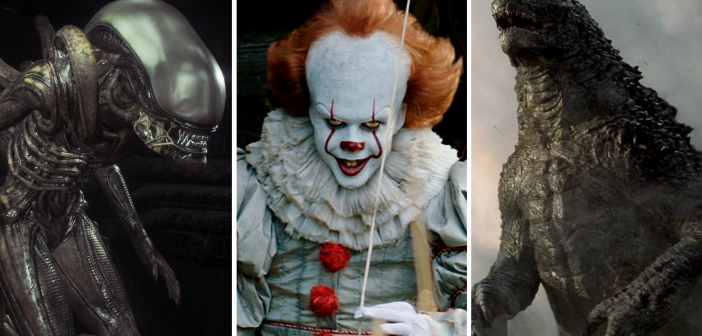We’ve all had monsters living under our beds at some point or another, but why are we so fixated on these creatures of the night? From classical literature like Frankenstein to modern television hits like Stranger Things, they’ve infiltrated every area of popular entertainment. Whether they’re man-made monstrosities or supernatural horrors, we can’t escape our love of all things monstrous.
It might seem obvious, but we’re obsessed with monsters because they scare us. We’ve all got a morbid curiosity for what we’re frightened of. Whether it is disease, natural disasters or terrorism, we’re simply unable to bury our heads in the sand for too long. King Kong and Dracula might not be real, but the most influential monsters are created by distilling our genuine fears. Monsters have the ability to personify our uncertainties and provide a singular entity with which to associate our greatest fears.
As our fears shift, so do our monsters. World War II saw the rise of giant movie monsters and this has been largely attributed to the rising fear of nuclear weapons. Just like the atomic bombings of Hiroshima and Nagasaki, Godzilla could stomp through and destroy an entire city in seconds. It’s no surprise that this genre found particular success in Japan, the country scarred by nuclear destruction less than a decade prior to Godzilla’s debut. Associations only have to be made subconsciously to make a massive impact on the viewer.
This isn’t just a modern occurrence – even the fears of the ancient Greeks were reflected in their literature through monsters. The mythological Minotaur was a creature with the head of a bull that supposedly lived underneath the island of Crete. It’s now believed that the Cretans devised this legend to explain the earthquakes in the area. While we now know what causes tectonic activity, the Greeks were forced to invent a beast to associate their nowadays irrational fears with.
However, some fears remain a constant. We’ve always had a fear of the unknown and supernatural horrors play directly into this. Aliens can provide the ultimate form of the unknown and so they’ve become more and more popular as monsters in our entertainment. The Xenomorph from Ridley Scott’s Alien is an inhuman parasitic killing machine with biology far from ours. Even Pennywise the Clown from Stephen King’s IT has extra-terrestrial origins, it only appears as a clown so we have the ability to comprehend it.
Whether we’re blasting through them in the latest video game or telling spooky stories around a campfire, it’s important to consider why we find a specific monster so enthralling. It’s difficult to predict what the next generation of monsters will represent, but it seems obvious that they will continue to play an important role in our fiction.




